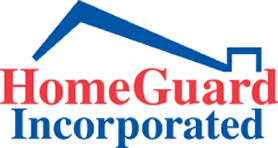“Nothing To Note” (Looking But Not Seeing?)

by David Hamerslough
Recently, I went to an important charity event that required I get dressed up. Before I left, I checked out how I looked. The first suit I pulled out was wrinkled and needed to go to the cleaners so I chose another suit. After putting my shirt and tie on, I noticed that the tie I’d selected had a spot on it, so I put on a new tie. I combed my hair to make sure that I was happy with the way it looked. (For those who don’t know me, in the spirit of full disclosure, I’m bald, so this was quick.) I completed my shaving, then noticed a couple of areas that needed another pass with the razor. I hope you get the picture. I had to look good and didn’t want to miss any “red flags” that needed to be addressed.
I am sure that most licensees do the same self-assessment when meeting with a prospective client for the first time, such as at a listing presentation or when attending an awards ceremony. However, sometimes I wonder whether real estate licensees spend as much time on, or look with as focused an eye during, their visual inspection of a property as we all do when scrutinizing ourselves to get ready for a big event.
Lately, I have reviewed a number of RAVIDs and AVIDs that have caused me to become concerned that agents are physically preparing their visual inspection disclosure as though it is part of a standardized routine; however, it is questionable whether these agents are truly conducting the statutory “competent, diligent, visual inspection” of the entire property. This concern is heightened when the agents use stock phrases that are frequently repeated in their disclosures with respect to each room such as “nothing to note,” “no items to note,” “no problems whatsoever,” “normal wear and tear,” “a few chips and dents,” “normal cracks,” “needs updating,” “paint needs refreshing,” “freshly painted and/or remodeled,” “see inspection reports,” “scratches,” etc.
Other comments/recommendations that seem to repeat themselves include “agent recommends all appropriate or necessary inspections,” “I am not an inspector, so I can’t determine if there are any problems,” and “buyer to check permit status, square footage, etc.” Finally, “agent agrees with seller’s portion of the TDS” or “agent does not see anything that contradicts seller’s statements.”
In September of 2014, I wrote an article titled “A RAVID Or An AVID Is Not A Marketing Device.” That article highlighted a trend, among other things, that I had observed regarding how real estate licensees were approaching their visual inspections and memorializing the same. The words and phrases quoted in the preceding paragraphs along with other comparable agent notes suggest a different trend, which I call “looking but not seeing.”
As I’ve done before when I observe a trend, I contacted five qualified California real estate attorneys to ask them whether they had observed a similar trend and, more importantly, what conclusions they would reach or what arguments they would make regarding the adequacy of a real estate licensee’s visual inspection based on a RAVID and/or AVID that contained similar words and phrases.
All of the attorneys agreed that they had seen comparable efforts by many agents, and the following are just some of their comments:
- These phrases bring into question whether a reasonably competent and diligent visual inspection was actually performed. If all that the agents saw were minor issues but missed significant “red flags,” an argument can be made that there really was no visual inspection, merely a recitation of stock phrases. What red flags were actually present based upon the seller’s disclosures, another licensee’s RAVID or AVID, inspection reports, historical documents, etc. which are not seen by the agent?
- In a claim or lawsuit, these phrases could be used to seriously question the licensee’s knowledge, training, skill, and experience. What training, if any, did the licensee receive regarding their visual inspection, disclosures, etc.? Do they regularly attend office meetings and seminars other than what is required to renew their license every four years? Do they attempt to stay current by reading industry publications or other resources that discuss similar issues? Were they concerned about identifying negative issues, conditions, and/or problems because of the impact it might have on the sale of the property? Is this a topic that was discussed between the listing agent and the seller?
- In a claim or lawsuit, agents will be questioned about how much time they actually spent at the property on their visual inspection. Do they have any notes or photographs related to that inspection? If all that they did was recite routine phrases, it can be argued that they were not diligent in conducting this important duty.
- These phrases may suggest something negative about a licensee’s attitude, focus, and diligence. Is there a pattern of behavior that is apparent in other activities undertaken by that licensee? For instance, have historical documents in the possession of the seller and/or licensee and/or licensee’s brokerage been identified and provided if still available? Has the licensee read any prior or existing inspection reports or other documentation regarding the condition of the property?
- If the agent has been dismissive about the agent’s inspection duty, what effort was made, if any, to learn those material facts that might impact the decisions of either the seller or buyer so as to complete the agent’s responsibilities?
- In a claim or lawsuit, agents will be questioned regarding what follow-up inquiry was made, if any, of their respective clients, the seller, and/or third parties with respect to these red flags? Similarly, what recommendations for follow-up inspections by qualified professionals, if any, were made as a result of these red flags? If any were made, were they reasonable ones, detailed enough, appropriate, etc.?
I do not know what the cause of this trend has been. Perhaps it has been a function of the market that we have come out of, where houses often were selling themselves. Perhaps there are other, less benign explanations. Nonetheless, the information that you include in a RAVID or AVID can demonstrate whether you met your duty of conducting a reasonably competent and diligent inspection; keep in mind that anyone reviewing those documents may draw conclusions from them about your attitude, attention to detail, focus, and/or your overall competency.
As I’ve said and written before, real estate licensees’ RAVIDs and AVIDs should identify the date(s) of their inspection and who was present. Agents should factually describe the red flags or issues, conditions, and/or defects with the property; avoid adjectives (such as “hairline” crack, “minor” sloping, etc.) and/or conclusions (e.g., what caused a condition or that it has been “repaired” and/or “fixed” or “nothing contradicts the seller’s disclosures”) when detailing the results of their visual inspection. Make sure that you include the interior and exterior of the dwelling, because the agent’s inspection must include the entire property. Consider not only what you can see but also what you can hear and smell. Avoid language such as the phrases that prompted this article (e.g., “nothing to note” and the like). The RAVID and AVID should also contain appropriate recommendations for further inspections by qualified professionals of any noted “red flags.”
I am not the first person who has commented on these issues. However, given the volume of RAVIDs and AVIDs that I review, and the comments I received from the other attorneys I have contacted, all of us are concerned that this trend of agents “looking but not seeing” may become even more widespread and create even greater liability exposure for the brokerage industry. Let’s hope that this article refocuses our vision.
About David Hammerslough
In his 40 years of practice, Dave Hamerslough has litigated and arbitrated residential and commercial real estate disputes on behalf of brokers and agents, buyers and sellers, and landlords and tenants. He teaches courses and writes articles on these subjects for brokers, agents, attorneys, and consumers. Dave also acts as mediator and arbitrator of real estate disputes. He is admitted to practice in all California courts.
About HomeGuard Incorporated – Home Inspections from Sacramento to San Diego
HomeGuard Incorporated provides home inspections, roof inspections, termite inspections, sewer lateral inspections, and pool/spa inspections as well as Natural Hazard Disclosure reports for realtors, home buyers and sellers, as well as homeowners who want to learn about and plan for future home maintenance. Contact us today to schedule an inspection or request a natural hazard disclosure report.




